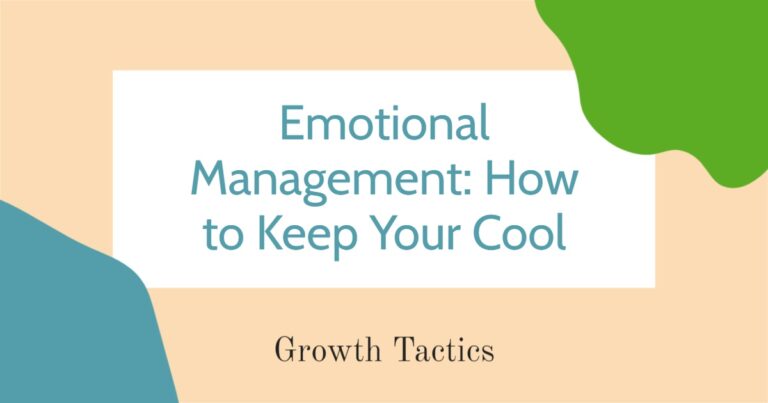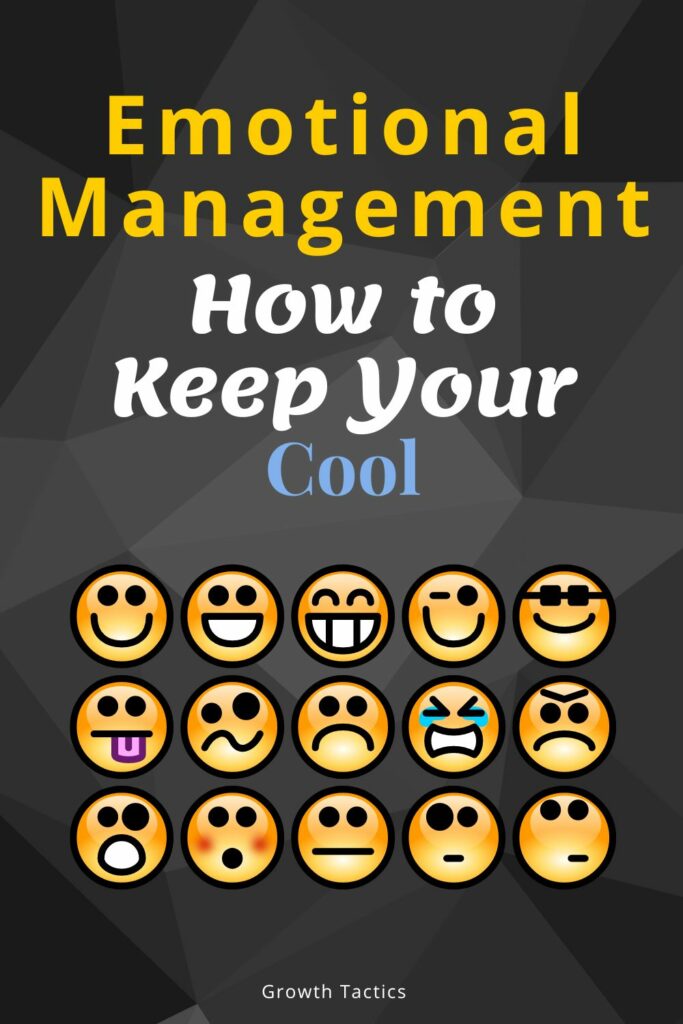As a fiery young person with a short fuse, I often found myself engulfed in the flames of my own anger. It was a volatile force, capable of igniting from the smallest spark. My emotions were an unchecked wildfire, scorching relationships and opportunities in their wake. But, much like a phoenix rising from the ashes, I learned the transformative power of emotional management. This journey wasn’t just about extinguishing the flames. It was about understanding the kindling and the breeze, about shaping the fire into a source of warmth and light, rather than destruction.
If you’ve ever felt at the mercy of your emotions like I used to, know there’s a path through the inferno. From the embers of my former self, I’ve learned insights that can illuminate your way too. This is not a tale of suppressing what you feel, but rather a guide on how to navigate the heat of emotions with grace and tact. The art of managing emotions is crafted through patience, practice, and persistence. Join me in exploring the strategies and techniques that forge emotional resilience, transforming volatile reactions into considered responses, and ultimately, leading to a life of harmony and balance.
Jump To Section
Understanding Emotional Management
At the core of leading a balanced and fulfilling life lies our ability to manage our emotions. Emotional management, also known as emotional regulation, encompasses the techniques and strategies we employ to moderate and control our emotional responses to various situations. It’s not about suppressing or negating our feelings but rather understanding, processing, and expressing them healthily and productively.
Emotional regulation involves observing and accepting our feelings, recognizing their source, and deciding how we’ll respond to them. It’s the difference between reacting impulsively in a moment of anger and taking a deep breath to assess the situation before responding. This skill allows us to navigate challenging circumstances with grace and maintain our mental well-being in the process.
Effective emotional management helps mitigate the effects of stress, enhancing relationships, and fostering a positive self-image. It involves techniques ranging from mindfulness and deep breathing to more complex cognitive behavioral strategies aimed at altering our emotional responses.
The Role of Emotional Intelligence

Central to emotional management is emotional intelligence—the ability to identify, understand, and manage not only our emotions but those of others. Emotional intelligence acts as a bridge between feeling and reason, enabling us to navigate social complexities with empathy and awareness.
Having a high level of emotional intelligence means being aware of the fluctuations in your own emotions as well as recognizing the emotional states of others. This awareness is pivotal in managing interactions and relationships effectively. It influences how we interpret and react to situations, allowing for more adaptive responses instead of being led by raw emotion. For instance, understanding that a coworker’s curt reply isn’t a personal affront but perhaps a sign of their stress can change how we respond to them, fostering a more supportive environment.
Moreover, emotional intelligence provides the tools for introspection, allowing us to question why certain events trigger strong emotional reactions and how these feelings might be rooted in past experiences or insecurities. This level of self-awareness is essential in developing strategies to navigate emotional challenges and in fostering resilience.
In essence, emotional management and emotional intelligence are intertwined, each enhancing the other. By developing our emotional intelligence, we equip ourselves with a deeper understanding of our emotional landscape, which in turn, improves our capacity for emotional regulation. This symbiotic relationship is key to navigating life’s ups and downs, turning emotional hurdles into stepping stones for personal growth and fulfillment.
Key Techniques in Emotional Management
Keeping emotions in check doesn’t mean ignoring or suppressing them; it involves recognizing, understanding, and managing them effectively. Here are ten practical techniques that can help you maintain emotional equilibrium in your daily life.
1. Practice Mindfulness
Mindfulness is the art of being present and fully engaged with whatever we’re doing at the moment, free from distraction or judgment. Regular practice helps you gain awareness of your thoughts, feelings, and sensations and gives you a better grip on your emotional responses.
2. Engage in Deep Breathing
Deep breathing exercises can calm the nervous system and reduce stress and anxiety. Techniques like the 4-7-8 breathing method or box breathing can be particularly effective in moments of emotional intensity.
3. Keep a Journal
Writing down your thoughts can be a therapeutic way to express what you’re feeling and pinpoint what triggers your emotional responses. It also aids in reflecting and understanding your emotions better.
4. Develop Emotional Awareness
Spend time identifying and naming your emotions. The more specifically you can identify what you feel, the easier it is to address it appropriately.
5. Take a Timeout
When emotions run high, giving yourself a timeout can be beneficial. Whether it’s stepping away from a stressful situation or just taking a moment to breathe deeply, breaking away from the trigger can help manage your emotional response.
6. Use Positive Affirmations
Positive affirmations can help replace negative thoughts that may be contributing to emotional distress. Repeating phrases like “I am calm and can handle this situation,” reinforces your ability to manage challenging emotions.
7. Exercise Regularly
Physical activity releases endorphins, the brain’s feel-good neurotransmitters. Regular exercise not only helps in reducing stress but also enhances your overall mood.
8. Prioritize Sleep
A lack of sleep can increase stress and negatively impact both your emotional and physical health. Prioritizing a good night’s sleep can improve your ability to manage stress and maintain emotional balance.
9. Seek Support
Talking about your emotions with someone you trust can provide relief and deepen your understanding of your emotions. It’s not just about venting, but also about gaining different perspectives.
10. Practice Gratitude
Make it a habit to recognize and appreciate the good things around you. This can shift your focus from negative emotions and help cultivate a positive state of mind.
Employing these techniques regularly can enhance your ability to manage emotions effectively. Remember, the goal isn’t to eliminate emotions but to understand and regulate them in a way that enhances your capacity to cope with life’s challenges.
Advanced Tools for Emotional Regulation
Managing emotions, especially in the face of adversity, can be challenging. Advanced tools for emotional regulation can be very helpful. In this section, we delve into grounding techniques and the importance of professional help and therapy.
Grounding Techniques
Grounding is a therapeutic technique that helps divert attention away from distressing emotions by focusing on the present moment and reconnecting with the environment. This practice can be particularly useful for individuals experiencing PTSD, anxiety, or other forms of emotional distress as it helps to weaken the association with negative thoughts or flashbacks and brings one’s focus back to the present.
Examples of Grounding Exercises
- 5-4-3-2-1 Technique: Name five things you can see, four you can feel, three you can hear, two you can smell, and one you can taste.
- Physical Grounding: Feel your feet on the ground, press your hands against a surface, or hold a piece of ice. These physical sensations draw attention to your body and away from your mind’s distress.
- Mental Grounding: Engage in a mental activity like counting backward from 100, reciting the alphabet backward, or visualizing a peaceful scene to redirect your thoughts.
Professional Help and Therapy
Though self-regulation techniques are valuable, there are times when professional help can be crucial. If you find that your emotional state is consistently interfering with daily functioning, causing distress that feels overwhelming, or leading to harmful behavior, it may be time to seek out a therapist.
Overview of Therapy Services Like Dialectical Behavior Therapy (DBT)
- Dialectical Behavior Therapy: DBT is an evidence-based psychotherapy that is particularly effective in treating a range of conditions, like borderline personality disorder, depression, and eating disorders. It primarily focuses on teaching patients skills in distress tolerance, emotional regulation, mindfulness, and interpersonal effectiveness.
- Cognitive Behavioral Therapy (CBT): CBT is another form of therapy that helps individuals identify and change negative thinking patterns and behaviors. It’s commonly used to treat anxiety, depression, and other mental health conditions.
- Eye Movement Desensitization and Reprocessing (EMDR): EMDR is a structured therapy that encourages the patient to briefly focus on the trauma memory while simultaneously experiencing bilateral stimulation (typically eye movements), which is associated with reductions in the vividness and emotion associated with the trauma memories.
Therapists may incorporate these and other specialized services to provide a tailored approach to emotional regulation, suiting the unique circumstances and needs of their patients.
By combining grounding techniques with professional therapy interventions, individuals can attain a more robust set of skills to manage and regulate their emotional states. Embracing both immediate coping strategies and long-term therapeutic support can yield significant improvements in one’s emotional health and quality of life.
Identifying Emotional Triggers
Understanding and managing emotional triggers is a crucial aspect of emotional regulation. Emotional triggers are specific thoughts, feelings, events, or interactions that can provoke an intense emotional reaction, regardless of your current mood. By identifying what these triggers are, you can better anticipate and manage your emotional responses.
Recognizing Emotional Triggers
Recognizing your own emotional triggers involves introspection and reflection. Here’s how to identify your triggers:
- Monitor Your Emotional Reactions: Pay close attention to instances when you feel a sudden shift in mood or discomfort. What happened right before this change? Consider keeping a journal to track these episodes.
- Look for Patterns: As you gather more information about your emotional reactions, look for recurring themes or situations. These patterns often point directly to your triggers.
- Consider External Factors: Sometimes, triggers can be related to sensory inputs like sounds, smells, or visuals. Be mindful of your environment and its potential impacts.
- Review Your Relationships: Often, our interactions with certain individuals can set off emotional spikes. Reflect on past conflicts or conversations to identify any emotional responses connected to specific relationships.
- Assess Your Physical State: Lack of sleep, hunger, or physical discomfort can exacerbate emotional reactions. Recognizing these as potential triggers can help you manage responses better.
Common Emotional Triggers
Identifying what commonly triggers people can help in recognizing your own triggers. Here are a few examples:
- Conflict: Disagreements or misunderstandings can easily provoke emotional responses.
- Stress: High-stress situations or chronic stress can heighten emotional sensitivity.
- Fatigue: Being tired or having low energy can make you more susceptible to emotional reactions.
- Overstimulation: Loud noises, overcrowded spaces, or too much visual activity can trigger discomfort.
- Change: Significant life changes, even positive ones, can be triggering.
Preparing for Emotional Triggers

Once you have identified your triggers, preparing for them can help manage their impact:
- Develop Coping Strategies: Have a set of responses ready when a trigger occurs, such as deep breathing, stepping away, or using grounding techniques.
- Set Boundaries: If certain people or situations are identified as triggers, it’s okay to set boundaries or limit exposure to these triggers.
- Communicate Needs: When appropriate, communicate your triggers to others. This can help them understand your reactions and support you in managing your triggers.
- Seek Professional Help: If triggers are rooted in deeper emotional issues or trauma, working with a therapist can provide you with tools to better understand and manage them.
By being proactive about recognizing and preparing for emotional triggers, you can take important steps towards maintaining emotional balance and enhancing your psychological well-being.
Developing a Personalized Emotional Management Plan
Managing emotions is not a one-size-fits-all process; it requires creating a personalized plan that caters to your unique experiences, strengths, and challenges. Below are steps to develop an effective emotional management plan tailored to individual needs.
Step 1: Self-Assessment
Begin by evaluating your current emotional state and how you typically respond to emotions. Identify the emotions you find difficult to manage and the situations in which they arise. Reflect on what has and hasn’t worked in the past.
Step 2: Establish Goals
Set clear objectives for what you want to achieve with your emotional management plan. Goals could range from reducing the frequency of intense emotional reactions to developing healthier coping mechanisms.
Step 3: Identify Triggers and Warning Signs
As addressed in previous sections, pinpoint your emotional triggers. Recognize early warning signs that indicate you are becoming emotionally overwhelmed, such as increased heart rate, irritability, or an urge to withdraw.
Step 4: Learn and Practice Coping Skills
Compile a toolkit of coping strategies that can help in difficult moments. These might include mindfulness meditation, deep breathing exercises, or positive self-talk. Practice regularly to build your skills.
Step 5: Create a Support Network
Engage with friends, family, or support groups who understand your goals and can provide encouragement. A support network can offer outside perspectives and help you stay accountable.
Step 6: Develop a Routine
Integrate your emotional management strategies into a daily routine. Consistency can make it easier to implement your plan when intense emotions arise.
Step 7: Plan for Setbacks
Acknowledge that setbacks will occur, and plan how to deal with them constructively. Instead of viewing setbacks as failures, see them as opportunities to learn and refine your plan.
Step 8: Monitor Your Progress
Keep track of your emotions, triggers, and coping effectiveness. Adjust your plan as needed based on what you learn from your tracking.
Step 9: Celebrate Achievements
Take the time to recognize and celebrate your progress, no matter how small. This positive reinforcement can boost your motivation and commitment to your emotional management plan.
Step 10: Review and Revise Regularly
Periodically review your overall plan to ensure it remains relevant and effective for your needs. As you evolve, so too should your approach to managing your emotions.
By following these steps, you can craft a personalized emotional management plan that supports your mental well-being and equips you with the tools to handle life’s challenges with greater resilience and composure.
Further Resources for Emotional Management
Congratulations on taking the first steps toward mastering your emotional management skills! As you continue on this journey, you might find it helpful to explore additional resources that can further enhance your understanding and provide you with more tools for keeping your cool. Here are some valuable resources to consider:
1. Books for Emotional Intelligence and Resilience
Books can be a wonderful source of knowledge and inspiration when it comes to emotional management. Here are a few highly recommended titles:
- Emotional Intelligence 2.0 by Travis Bradberry and Jean Greaves: This book delves into the science of emotional intelligence and offers practical strategies for developing your emotional skills.
- The Upside of Stress: Why Stress is Good for You, and How to Get Good at It by Kelly McGonigal: In this empowering book, you’ll learn how to embrace stress and transform it into a catalyst for growth and resilience.
- The Mindful Path to Self-Compassion by Christopher Germer: This book explores the practice of mindfulness and self-compassion as a way to manage difficult emotions and cultivate emotional well-being.
2. Online Courses and Workshops
If you prefer a more interactive approach to learning, online courses, and workshops can provide you with valuable insights and practical techniques. Some reputable platforms offer courses specifically focused on emotional management and well-being. Here are a couple of suggestions:
- Coursera: Check out their offerings on emotional well-being and mindfulness. You’ll find courses taught by leading experts in the field.
- Mindful: This website offers a variety of resources, including courses, workshops, and articles, to help you cultivate mindfulness and emotional resilience.
3. Therapy and Counseling Services
Sometimes, seeking professional help can be immensely beneficial in managing your emotions. A trained therapist or counselor can provide guidance, support, and personalized strategies tailored to your specific needs. If you feel you could benefit from professional assistance, don’t hesitate to reach out to a licensed mental health professional.
4. Online Communities and Support Groups
Engaging with like-minded individuals who are also navigating the path of emotional management can provide you with a sense of community and support. Online communities and support groups can be a great place to share experiences, gain insights, and learn from others. Look for forums, social media groups, or specialized websites that focus on emotional well-being and self-care.
Remember, emotional management is a lifelong journey, and there is always more to learn and discover. By exploring these resources, you’ll gain additional tools and insights to help you stay calm, centered, and resilient in the face of life’s challenges.
Keep up the great work on cultivating your emotional well-being
Conclusion
In conclusion, recognizing emotional triggers and developing a personalized emotional management plan are fundamental steps toward fostering emotional well-being and resilience. The journey towards effective emotional regulation is highly personal and requires a commitment to self-assessment and continuous growth. Identifying triggers allows for better preparation and response to emotional challenges, while a tailored management plan equips individuals with strategies and tools to navigate their emotional landscape more effectively.
It’s important to remember that while the path to emotional mastery may involve setbacks, each step taken is a stride toward greater self-awareness and emotional health. Celebrating progress, no matter how small, and regularly revisiting and adjusting your plan are crucial aspects of sustaining long-term emotional well-being. With persistence, patience, and practice, anyone can improve their emotional regulation and, in turn, enhance their quality of life.


